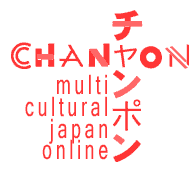2002年08月26日 月曜日
Dating a Japanese Weblog
by Justin Hall
Language, Technology
For Chanpon.org, we are using some web log publishing software called Moveable Type. We're working with the nice folks that made it to help them develop support for Japanese characters in dates and times. Here's a draft sketch of Japanese text dating - please review this and give it your comments before we pass this along!
Traditionally, Japanese years were done by Emperor or events - I was born something like "year 42 of the showa era" - it's annoying when you're filling out forms to remember in what year, and in what era something happened.
Fortunately most modern Japanese folks and certainly Japanese netizens use the Gregorian dating system with arabic numerals. Some examples: from Hotwired or Daily Yomiuri.
Today is: 2002年8月25日. Here are the date characters:
年 – year
月 - month
日 - day
Here are the Days of the week:
月曜日 - monday
火曜日 - tuesday
木曜日 - wednesday
水曜日 - thursday
金曜日 - friday
土曜日 - saturday
日曜日 - sunday
These are written out full - TUESDAY. If you wanted to write just TUES (as many Japanese do), you would just have 火.
For time, Japanese tend towards Military Time. Otherwise, AM and PM are recognized there.
Posted by Justin Hall at 2002年08月26日 08:01

Comments
Justin, thanks for testing this. I can read the Japanese but when I post I think it is mojibake. ?????????
Like you said, in Japan people tend to use only the character for the day with out using the "day" characters after it to keep it shorter.
Don't forget to put the months in Japanese characters as well, it adds a more Japanese touch.
I have an example of a bilingual MT blog.
To include Japanese in the calendar at <a href="http://23degrees.com/mt/">Morehow Hibimoyo</a> we used the ascii equivalents of the Japanese characters, which means all we saw were garbled characters when they were entered it into the Perl script.
But the html template automatically reflects the changes we made in proper Kanji, Hiragana or Katakana. This way all dates in the entire blog are Japanese and English or whatever language you choose without needing to adjust each html template or entry that uses a date.
All the character sets of the html templates are "Shift_JIS" and I also changed the default charset if the Perl scripts. On the server I was using it was impossible to have it display Japanese otherwise. The characters then display properly when I see them through an internet browser.
The rest of the Japanese language customisation was done through the MT interface. We added the desired bilingual text to the template areas, which is easy to do once we got our blog to display and post in "Shift_JIS" Japanese characters.
There are a lot of things I still need to figure out, metric time display is one of them.
Tom Svab and Saori Nishikawa
Hmmm... I just find that Japanese generally looks uglier on the web. I think the pixel pitch, the ugly fonts and the difficulty of doing more dynamic layouts may be part of the reason. I generally like to use am much English as possible in Japanese web pages. Maybe this is because my Japanese sucks. ;-) I don't think that's the only reason though.
They're always squares for me ;)
Agree with Joi Ito. Japanese letters are not displayed that nicely on screen as in print or hand writtings.
Posted by: ひらた on 2002年09月02日 18:40
I don't think Japaese people want completely Japanese forced web. Natural Chanpon of English and Japanese is better. Indeed for old Japanese people KATAKANA Japanese is hard to understand, but web pages too much KANJI are also unagreeable... The balance of KANJI and KATAKANA is also important.
Anyway, additional points for Justin's summary. There are various type of date.
1. year
There are Western style(西暦) and Japanese style(和暦, WAREKI). In Japan, Nengo(年号) is used in official documents like 平成14年. We also use '/' as the separater of year, month and day like '2002/9/2' for 2002年9月2日 but Separater is not use with WAREKI.
2. month
number + '月' is fine. There are old fasion month names used with '旧暦' like 長月(NAGATSUKI, it means Sepember) but it is not normal.
3. day
number + 日 is fine.
4. days of week
Justin's opinion is fine.
5. Time
Military time is fine. Using ':' (colon) as the separeter of hour and minite like '18:30'.
We use '午前'/ '午後' Instead of AM/PM before time like 午後6時30分.
6. 漢数字(kansuji) issue
We also use 漢数字(一,二,三,四...) these mean number (1,2,3,4...).
I feel the below are normal
- 2002年9月2日 18:30
- 平成14年9月2日 午後6時30分
Posted by: ひらた on 2002年09月02日 18:40